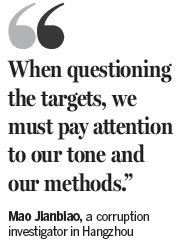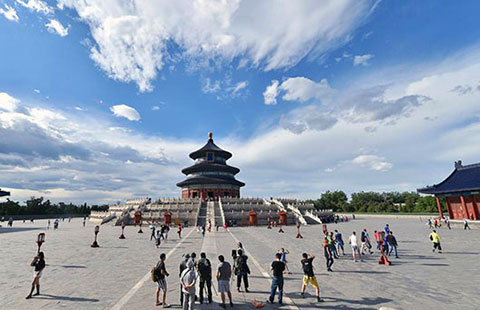Report says corrupt officials get trickier
By Xinhua (China Daily) Updated: 2015-08-10 07:44Corrupt officials, from high-ranking executives to lowly bureaucrats, are getting more sophisticated in evading traditional investigations, an anti-graft newspaper reported.
Although corrupt officials tried to outwit graft-busters, they still failed in the end, China Discipline Inspection Daily, a newspaper affiliated with the country's top anti-graft body, reported on Saturday.
The report cited 11 cases in which corrupt officials developed elaborate lies, colluded with others to devise a consistent story, transferred ill-gotten wealth, and destroyed or created evidence to stall investigation efforts.

Xu Gang, the former deputy governor of Fujian province, was found to have colluded with his bribers and transferred illicit money, the Beijing newspaper said.
Some powerful officials, it said, were found to have taken revenge on whistleblowers.
"Corrupt officials' awareness of and ability in counterinvestigation have become more and more powerful, and they have shown a more frequent tendency to fight back," the report said, citing a Jiangxi graft-buster.
In some cases, the target would even simulate an investigator's questioning process or ask relatives at judicial offices for help, it said.
One official was very careful with his cellphone. He bought multiple phone cards, used unregistered phones to talk with his accomplices and met with them at secret places, said Mao Jianbiao, a corruption investigator in Hangzhou, Zhejiang province.
"When questioning the targets, we must pay attention to our tone and our methods," Mao said.
- Delegation salutes Tibet anniversary
- Officials are told to act as anti-graft watchdogs
- Great Wall safeguarded in united action
- Vice minister pledges more efforts to improve air quality
- Beijing’s efforts to control air pollution start to pay off
- China's military committed to reform
- Netizens rip singer over baby photos
- Central govt's growing support for Tibet
- Monument to be built on Tianjin blast site
- China and Russia seal raft of energy deals







